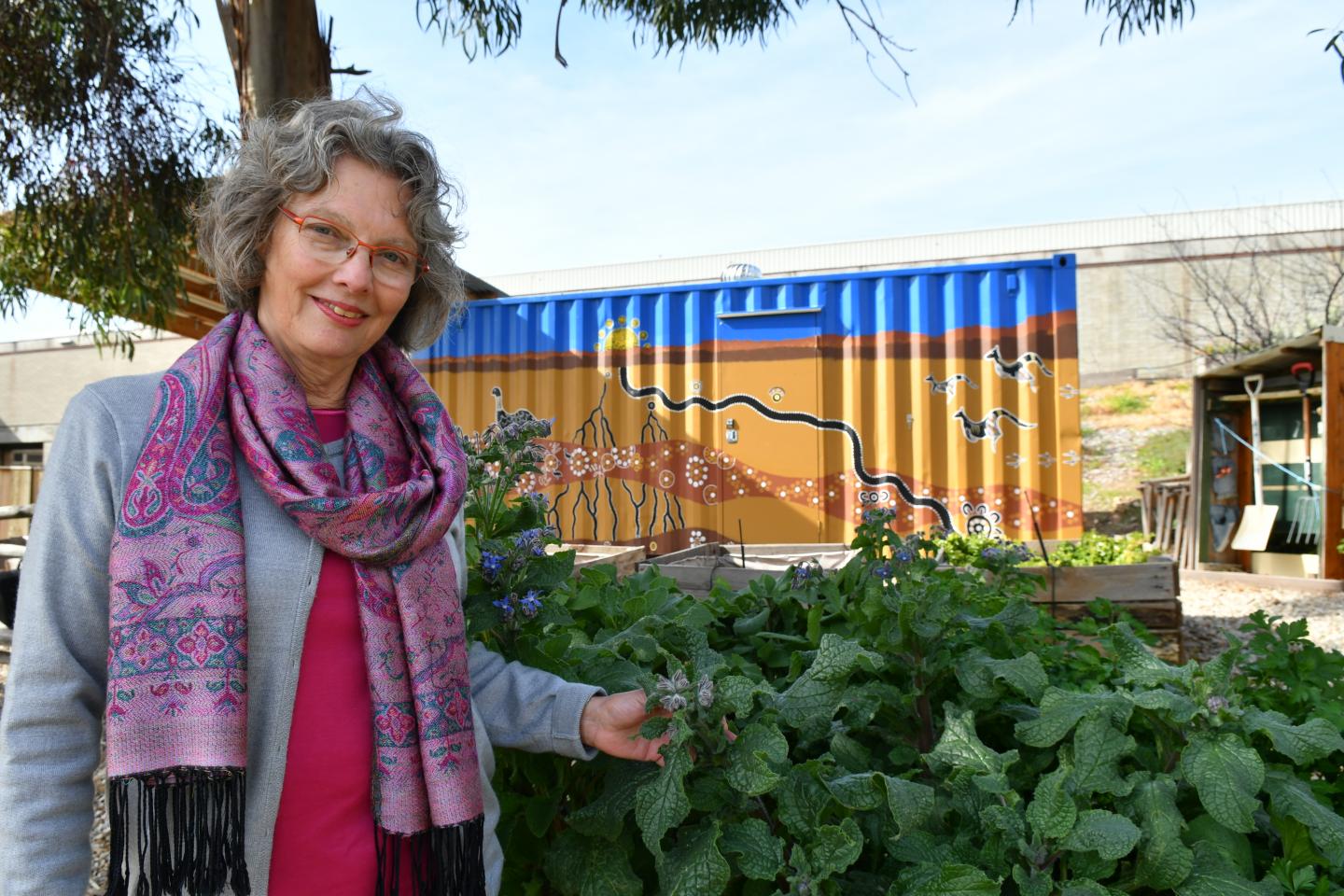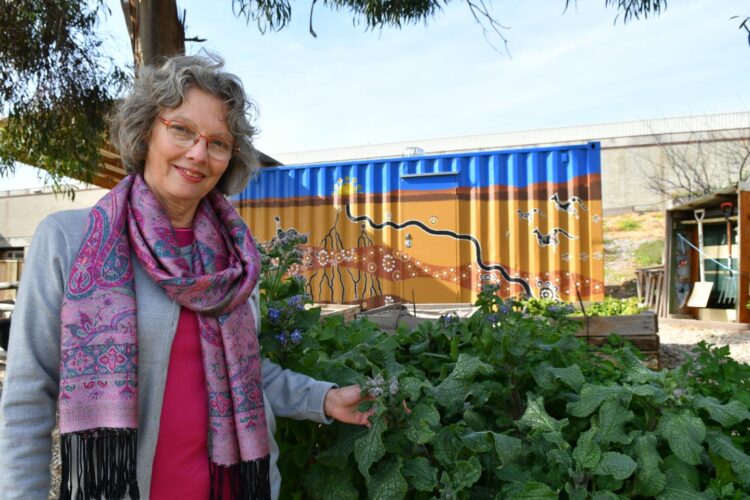Ethical eating with health, environment in mind

Credit: Flinders University
In the midst of a global pandemic, eating well in a sustainable way is more important now than ever, Flinders University experts say.
‘Eating local’ and growing your own fruit and vegetables can save money, provide families and local producers with vital income – and also improve health and immunity.
“The COVID-19 pandemic provides many good reasons to eat in healthier and more sustainable ways,” says Flinders University researcher Associate Professor Kaye Mehta.
“Gardening or being part of a community gardening or local food swap group lifts social connection, reduces anxiety and stress, and improves mental health by nurturing plants out in the fresh air.”
In a new study, the researchers warn the Australian diet is not sustainable, with high rates of eating meat, excessive packaging and food waste and unhealthy consumption levels.
But how much time do people spend weighing up food decisions for their nutritional content, environmental sustainability and fairness, ask Flinders University nutrition and public health experts in a new paper in the Health Promotion Journal of Australia.
“At the supermarket and when you eat out, do you investigate where the food comes from? In an ideal world, food supply would not only be healthy but also be environmentally and socially sustainable,” Associate Professor Mehta says.
“Our dietary choices are made within a complex, powerful and unsustainable food system which contributes to rising problems of food insecurity, malnutrition, chronic disease, climate change, loss of biodiversity, and unfair food trade practices,” she says in the new study of food literacy awareness at Flinders University.
The researchers put these questions to the test by running a two-week online course examining aspects of the food system, including:
The 47 participants of the online course – all staff and students of Flinders University – found their understanding of the food system and their attitudes towards food purchases changed to consider social and environmental sustainability, as well as health.
“Food choices that help the environment will also be healthier because people will eat more locally produced vegetables and fruits, less meat and less processed foods,” says dietitian-nutritionist Associate Professor Mehta, from the Flinders University Caring Futures Institute.
The study – the culmination of almost a decade of research into ‘food literacy’ and the effects of our food system – shows how much more can be done to improve our food supply and personal food decisions so that every bite we take considers the food’s origins and cumulative impact on the planet.
Lead researcher Associate Professor Mehta, from the Caring Futures Institute at Flinders University, says “food system literacy has not been a focus of food and nutrition
Education, in spite of growing public interest in sustainable eating”.
“Food system literacy is an opportunity for people to make better food choices that are good for their health as well as the environment and farmers.”
###
The Flinders University food system course is now being delivered in the community by Adelaide-based social nutrition enterprise, The Food Embassy, which is running a program called Food Matters.
The paper, A critical food system program in South Australia and the effects on consumer knowledge and attitudes (June 2020), by Kaye Mehta, Hannah Rohrlach, Richard Woodman, John Coveney, Paul Ward and Sue Booth has been published in Health Promotion Journal of Australia (Wiley) DOI: 10.1002/hpja.370
The UN Food and Agriculture Organisation describes sustainable diets as “those diets with low environmental impacts which contribute to food and nutrition security and to healthy life for present and future generations. Sustainable diets are protective and respectful of biodiversity and ecosystems, culturally acceptable, accessible, economically fair and affordable; nutritionally adequate, safe and healthy; while optimising natural and human resources.” – Sustainable Diets and Biodiversity, Directions and Solutions for Policy, Research and Action. Biodiversity and Sustainable Diets United Against Hunger; 2010; FAO Headquarters, Rome.
Media Contact
Kaye Mehta
[email protected]
Related Journal Article
http://dx.





